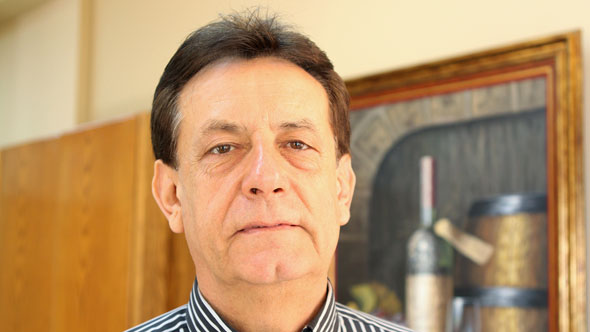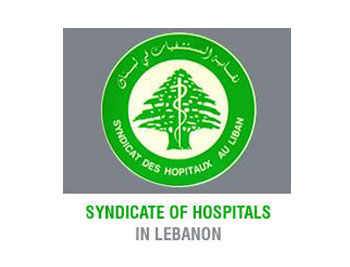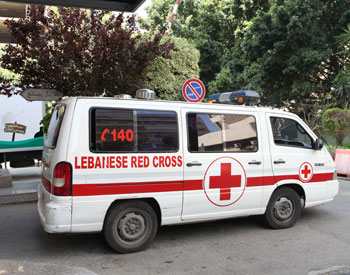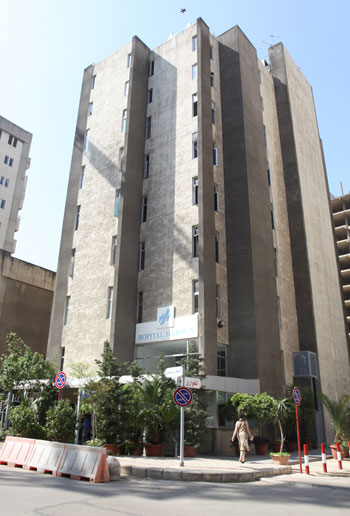Health Care Sector in Lebanon: Syndicate of Private Hospitals
Total hospital beds available in Lebanon amount to around 10,000 beds. Eng. Haroun expects 2012 to be a pivotal for health care sector in Lebanon. Also, Lebanon has a huge capacity for healh care tourism. The hospitals in Lebaon can admit up to 200,000 patients per year.
Interview with Eng. Sleiman Haroun, President of Syndicate of Private Hospitals in Lebanon

What is your overall assessment of the health care sector in Lebanon?
The health care sector in Lebanon falls under a private sector. Total hospital beds available amount to around 10,000 beds and out of those, 8,700 are in private hospitals and the remaining 1,300 beds are in public hospitals.
Compared to European health care institutions Lebanese are medium sized or smaller and most private hospitals have a capacity of 75 to 100 beds. Hospitals with more than 200 beds are university hospitals which are run and owned by faculties of medicine.
Lebanon has a total of 130 hospitals spread throughout the country of which, 105 fall under the private sector and 20 under the public sector. One of the largest public hospitals in Lebanon, with a capacity of 450 beds is located in Beirut. The largest private hospital on the other hand is a part of American University Medical Centre.
Medium sized hospitals have a capacity of around 75 beds and some are specialist hospitals with 25 to 30 beds. Besides these secondary and tertiary hospitals, which are utilized for a short or medium term stay,  long stay hospitals are used for patients with chronic diseases, psychiatric cases and care for elderly. All short and medium term stay hospitals are members of Syndicate whereas out of a total long term hospitals only 19 are member of Syndicate and the only ones up to standard.
long stay hospitals are used for patients with chronic diseases, psychiatric cases and care for elderly. All short and medium term stay hospitals are members of Syndicate whereas out of a total long term hospitals only 19 are member of Syndicate and the only ones up to standard.
Accreditation program has been introduced in 2000 for short-medium term stay hospitals and those that do not pass the accreditation would not be awarded insurance contracts and would eventually close. Part of the Accreditation program includes a survey run every 3 years which ensures hospitals are of high standard.
Percentage wise it is 105 private hospitals versus 20 public hospitals. Health care is largely private in Lebanon; yet people need health insurance and this insurance is public. Could you explain the insurance market; how does it work here in Lebanon?
Social security covers about 40% of population. The remainder are covered either by health scheme of Armed Forces (Internal security forces) or by a health scheme which is called ‘Cooperative of Public Employees’ for public servants. Private health insurance does exist, however it is not yet well developed and covers only about 12% of total population. The rest of the population of 1.5 million do not have this kind of health insurance, but are covered up to 85% by the Ministry of Public Health for treatments in a public hospital.
This presents a lot of challenges for people who are uninsured because they do not have any money. Is the challenge in the industry the balance between quality and accessibility to the health care; is there a rift between the two?
Hospitals have financial problems at present, because of the incapacity of the public insurers in provision of funds for medical treatments. It is known that Lebanese government has financial problems as majority of population is covered by public insurers. This ultimately reflects on the operation of a hospital.
In Lebanon, we have a huge capacity for health care tourism, even with the number of beds available at present. We can admit 200,000 patients per year. Unfortunately we are still very far from this figure.
Up until now, this was managed without big damages; however the government is aware that something must be done to address the tariffs for the services, which are very low at present as well as addressing big delays in paying the hospital bills.
We are at present, in negotiations with the Social Security Department and Ministry of Health and other officials as the solving of this problem is a priority despite other political turmoil in the country.
We know that the government does not have any more funds and is in debt, which is being reduced because of the growth in the economy; so what are the practical measures, suggestions that can be taken to solve this?
One solution is the cost of social security. It has been decided only last week that the percentage private companies pay for social security to cover the employees will be increased. This solves the problem of social security for over 1 million people.
Any government, regardless of financial difficulties must provide funds for issues that carry high priority, in this case health care. They will simply have to find the funds; otherwise the people cannot be treated for illnesses. The government has the budget and ways of funding this budget. This financial problem has existed for many years now; it is not something new so they will have to find a way out.
There are certain dynamics in the private sector; what do you see as the major trends; has the quality gone down? Are the private hospitals getting into more debt? Is the quality improving; are hospitals trying to attract tourists?
We were able to maintain a certain standard of quality in the services. The Accreditation program has enabled us to meet certain standards; any hospital that is not accredited cannot operate.
At the moment, we are surviving on bank loans, but this has its limits. Last year was particularly tough on hospitals. We’ve experienced a high inflation rate for many years but the tariffs were not adapted to meet this rise. The negotiation we are currently in with the government will result in the change of hospital fees; room rates, operating theatre rates and such. We will likely have a much better balance sheet at the end of 2012. However, if the government does not find the necessary funds, these changes will unfortunately remain only on paper.
I think the year 2012 is pivotal; either we are getting out of a crisis or we are heading towards some turbulent times. But I remain optimistic as we have finally reached an agreement with the government with regards to social security, and if this agreement is implemented as I expect, we should be making it out of the crisis.
In terms of industry, compared to other countries, especially in the Gulf; UAE, Kuwait even Jordan, how would you characterize the quality of the medical services and health care in Lebanon?
We have two aspects, human resources and technical; such as medical supplies.
Our human resources are still in advance of all neighboring countries. We have good universities, good medical staff; we are graduating doctors, medical nurses, lab technicians, businessmen, so we do have an edge in human resources compared to others.
Technical aspect, that is medical equipment, we do not have the financial means to acquire latest inventions and equipment, though we are generally doing well. Some hospitals may not have all the equipment they need, but the university hospitals do have top-notch equipment as they have access to finances through medical faculties as well as external financial support which enables them to keep up to date with medical supplies and thus maintain the high level of service.
To compare Lebanon to surrounding countries, considering both, the human resources and medical supplies, I think that people from surrounding countries do prefer to come to Lebanon for medical treatment. Firstly because of the quality and secondly, they have so many advantages; moderate weather condition is important to patients, language, accommodation availability for those accompanied by family and relatives; all these are extras which are important advantages to patients coming from the Gulf.
Another aspect of medical treatment which is booming is plastic/corrective surgery. We have a lot of people from the Gulf, coming to Lebanon to undergo plastic/corrective treatments.
Unfortunately we do not have any statistics for this sector because of the confidentiality; majority of such patients like to remain anonymous. What we do know is that there is a lot of activity in this sector.
As for medical tourism in Lebanon, we still have a lot to improve and had some difficulties, mainly because of the political situation in Lebanon. This gave way to Jordan to expand its health care tourism sector at the expense of Lebanese health care tourism. They have a coordinated effort with the government and are working with both, private and public sector. They have also managed to secure contracts with some Arab countries that do not have hospitals.
In Lebanon, we have a huge capacity for health care tourism, even with the number of beds available at present. We can admit 200,000 patients per year. Unfortunately we are still very far from this figure. So far, the figures are in tens of thousands and these are concentrated in a very few hospitals; American University, St Georges, French University are main attractions for health care tourism. Our aim is to widen the circle so that other hospitals can benefit from medical tourism.
How can you specifically do that?
We are trying to implement a strategic plan, in collaboration with the government. One of the many issues that need to be addressed is making it easier for people to obtain a Visa required to enter Lebanon.
We are also working on pricing structure, for example; lump sum pricing for specific surgeries so that patients are aware in advance of the total expenses. Another potential would be clinics in other countries which would refer patients to Lebanese hospitals and supply both, the patient and the hospital with necessary pre-op assessment. Such patients would enjoy a full service package including transport from airport to allocated hospital along with patient visits offering any required assistance. This is the comprehensive plan we are currently working on with assistance from Ministry of Health, Ministry of Tourism, Ministry of External Affairs and various other authorities.
Just to go back and confirm the 6 major institutions…
Lebanese-American University (LAU), American University of Beirut Medical Centre, Saint George Orthodox Hospital University, Centre Hospitalier Universitaire – Notre Dame des Secours, St Joseph University Hospital (SJU), Rafik Hariri University Hospital, Lebanon.